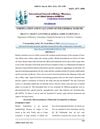 4 citations,
February 2017 in “Journal of Cutaneous Medicine and Surgery”
4 citations,
February 2017 in “Journal of Cutaneous Medicine and Surgery” Compounds from certain trees used by First Nations people show potential for treating skin conditions and promoting hair growth, but more research is needed to confirm their safety and effectiveness.
[object Object]  15 citations,
June 2018 in “Food Reviews International”
15 citations,
June 2018 in “Food Reviews International” Pumpkin seed oil may improve prostate health, bladder control, and hair growth in men.
 1 citations,
July 2018 in “Elsevier eBooks”
1 citations,
July 2018 in “Elsevier eBooks” FAPD and possibly CCCA may be AGA subtypes, and treatments combining antiandrogens, hair growth agents, hair transplants, and anti-inflammatories could be effective.

Custom skincare can be made based on genes, fewer cats in Lublin have FeLV/FIV than national average, and studies also looked at small water bodies, river pollution, guppy growth, toxins in biochars, palm oil issues, and pumpkin seed oil for hair strength.
 February 2019 in “Journal of the Faculty of Agriculture Kyushu University”
February 2019 in “Journal of the Faculty of Agriculture Kyushu University” Terpene concentrations in coniferous trees are highest in spring and summer, making these seasons best for extracting essential oils.
April 2009 in “한국메이크업디자인학회지” Geranium rose oil promotes hair growth and skin cell differentiation.
 4 citations,
September 2014 in “Elsevier eBooks”
4 citations,
September 2014 in “Elsevier eBooks” Use some skin medications with caution during pregnancy; avoid strong steroids, certain eczema treatments, and systemic retinoids, but many topical treatments and nasal sprays are safe.
 2 citations,
May 2002 in “Clinics in Dermatology”
2 citations,
May 2002 in “Clinics in Dermatology” Ethnic differences in hair and skin are significant and under-researched, requiring tailored dermatologic treatments and more study.
 1 citations,
December 2019 in “International journal of innovative technology and exploring engineering”
1 citations,
December 2019 in “International journal of innovative technology and exploring engineering” Fish scale-based organic hair oil and shampoo may improve hair health and prevent damage.
 December 2004 in “Medicine”
December 2004 in “Medicine” Pregnancy can cause skin changes and may affect pre-existing skin conditions, with some treatments not safe for use during pregnancy.
 67 citations,
December 2019 in “PloS one”
67 citations,
December 2019 in “PloS one” Beta-caryophyllene helps improve wound healing in mice, especially in females.
 35 citations,
January 2020 in “Skin Pharmacology and Physiology”
35 citations,
January 2020 in “Skin Pharmacology and Physiology” The review concluded that keeping the hair-growing ability of human dermal papilla cells is key for hair development and growth.
 12 citations,
February 2014 in “Recent Patents on Inflammation & Allergy Drug Discovery”
12 citations,
February 2014 in “Recent Patents on Inflammation & Allergy Drug Discovery” Shampoos have evolved into multifunctional products with patented innovations for different hair needs and can include medicinal herbs for hair and scalp health.
 3 citations,
April 2022 in “Farmacia”
3 citations,
April 2022 in “Farmacia” Certain foods and supplements can help treat skin diseases alongside medication.
 3 citations,
March 2022 in “Haya: the Saudi journal of life sciences”
3 citations,
March 2022 in “Haya: the Saudi journal of life sciences” Dates may improve heart health, fight infections, protect kidneys, reduce inflammation, support pregnancy, promote dental and bone health, enhance mental function, and have anti-cancer properties, and are also beneficial for skin and hair care.
 2 citations,
May 2023 in “bioRxiv (Cold Spring Harbor Laboratory)”
2 citations,
May 2023 in “bioRxiv (Cold Spring Harbor Laboratory)” Sebaceous glands can heal and regenerate after injury using their own stem cells and help from hair follicle cells.
 2 citations,
July 2011 in “Journal of the Egyptian Women's Dermatologic Society (Print)”
2 citations,
July 2011 in “Journal of the Egyptian Women's Dermatologic Society (Print)” Eating nuts, chocolate candy, and red tea might worsen acne, while eating more fresh vegetables could reduce it.
 July 2024 in “Science and Culture”
July 2024 in “Science and Culture” Thuja orientalis L. has many health benefits and could be used in new medicines.
 May 2024 in “Research Square (Research Square)”
May 2024 in “Research Square (Research Square)” Many women in Northern Ghana use plant-based cosmetics like shea butter, and their use is more related to being married than to their job, education, or house.
 March 2024 in “Revista Agraria Academica”
March 2024 in “Revista Agraria Academica” The Mediterranean dwarf palm has medicinal, nutritional, and craft uses, but more research is needed.
 February 2024 in “International journal of biology, pharmacy and allied sciences”
February 2024 in “International journal of biology, pharmacy and allied sciences” The polyherbal hair oil effectively treats various hair problems and promotes hair health.
 December 2023 in “International Journal of Advanced Research in Science, Communication and Technology”
December 2023 in “International Journal of Advanced Research in Science, Communication and Technology” Herbal shampoo is safe, effective, and good for hair and scalp health.
 November 2023 in “Research Journal of Pharmaceutical Dosage Forms and Technology”
November 2023 in “Research Journal of Pharmaceutical Dosage Forms and Technology” The herbal hair oil significantly promotes hair growth.
[object Object]  July 2022 in “International journal of Ayurvedic medicine”
July 2022 in “International journal of Ayurvedic medicine” The new herbal shampoo effectively controls dandruff using natural ingredients.
 December 2020 in “International journal of research in ayurveda and pharmacy”
December 2020 in “International journal of research in ayurveda and pharmacy” Eating well and avoiding synthetic hair products are key for healthy hair.
 December 2019 in “International journal of engineering applied science and technology”
December 2019 in “International journal of engineering applied science and technology” Tridax procumbens, a weed, has various medicinal properties including wound healing and antibacterial effects.
 January 2018 in “Modern approaches in drug designing”
January 2018 in “Modern approaches in drug designing” Kunzea oil may help stimulate hair growth.
 August 1946 in “Journal of the American Medical Association”
August 1946 in “Journal of the American Medical Association” Companies agreed to stop false advertising about their products' health benefits.
64 citations,
October 1998 in “Acta dermato-venereologica” Grape seed proanthocyanidins can promote hair growth.
 59 citations,
January 2010 in “Pharmacognosy Reviews/Bioinformatics Trends/Pharmacognosy review”
59 citations,
January 2010 in “Pharmacognosy Reviews/Bioinformatics Trends/Pharmacognosy review” Semecarpus anacardium Linn. has many medicinal benefits.



























